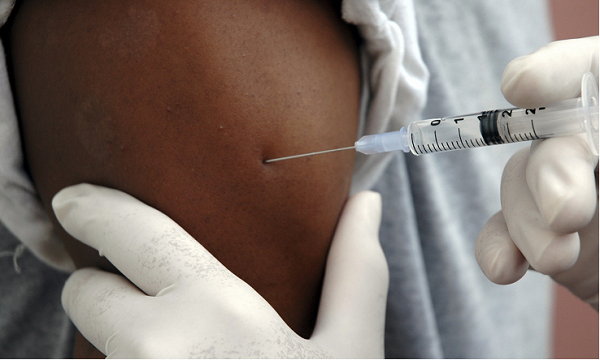Two Catholic organizations are calling on groups issuing COVID-19 vaccines mandates to include exemptions for people with moral and religious objections.
A number of government agencies, employers, schools and other entities have issued vaccine mandates recently in reaction to reports about a new Delta variant of the coronavirus. However, the currently available vaccines in the U.S. have connections to abortion.
As a result, some pro-life Americans have refused to be vaccinated out of moral or religious concern for unborn babies.
Spokespeople for the Catholic Medical Association and National Catholic Bioethics Center said they have been receiving many calls lately from people concerned about the mandates, according to the National Catholic Reporter.
In separate statements, both organizations urged groups issuing vaccine mandates to include religious and moral exemptions for people who, in good conscience, will not be vaccinated with a product that used cells created from aborted babies.
Follow LifeNews on the Parler social media network for the latest pro-life news!
“As an organization, CMA opposes mandatory COVID-19 vaccinations as a condition of employment without conscience or religious exemptions,” the group said in a July 28 statement. “An individual Catholic’s decision to be vaccinated should be informed by the clear and authoritative moral teaching of the church on vaccinations.”
The Catholic Church has clearly stated that “’as a rule’ vaccination ‘must be voluntary’ and based on an individual’s personal assessment in good conscience of the medical risks/benefits and morality of a particular vaccine,” CMA continued.
It recognized that vaccines help create a safe work environment, and emphasized that people who do not get vaccinated have a responsibility to avoid transmitting the virus to others, according to the report.
Both organizations also pointed to a statement from the Vatican about vaccines: “When ethically irreproachable COVID-19 vaccines are not available … it is morally acceptable to receive COVID-19 vaccines that have used cell lines from aborted fetuses in their research and production process. … At the same time, practical reason makes evident that vaccination is not, as a rule, a moral obligation and that, therefore, it must be voluntary.”
The Catholic Medical Association pointed out that a vaccine mandate without exemptions could have unintended consequences, especially in the medical community.
“… a lack of accommodation will result in an individual’s inability to work in their chosen vocation, lead to further shortages of essential health care workers, while exacerbating existing hesitancy and distrust regarding the COVID-19 vaccines,” the association said.
Both groups told the Reporter that they have been getting calls from vaccinated and unvaccinated Catholics who are expressing concerns about the new mandates.
They urged entities with vaccine mandates to include a clear, simple process for religious and moral exemptions, and to create procedures to help everyone “minimize the risk of contracting or transmitting” the virus.
All of the currently available vaccines have some connection to abortion. According to research from the Charlotte Lozier Institute, developers of the Johnson & Johnson vaccine used cell lines created from aborted babies in design and development, production and confirmatory lab tests to create the vaccine. No cells from aborted babies are in the actual vaccine.
Fetal cell lines are cells taken from an aborted baby and multiplied in a lab “into many cells of the same kind,” the research group explained. “These can be grown indefinitely and further multiplied, creating lines of cells that are sometimes used for science experiments.”
Many Catholics also have expressed concerns about the vaccine from AstraZeneca because it also used a cell line created from an aborted baby’s kidney in development, production and testing.
Pro-lifers and religious leaders have conflicting opinions about the coronavirus vaccines. Many have recommended that people avoid the AstraZeneca and Johnson & Johnson vaccines, but disagree about the Pfizer and Moderna vaccines.
In the case of the the Pfizer and Moderna vaccines, cell lines created from an aborted baby were used in “the animal-phase testing,” but they were not used in the development or production of the vaccines. Because the connection to abortion is small, many say the vaccines are acceptable, especially when no alternative is available. However, others argue that any connection to abortion, even a remote one, makes a vaccine unethical.
Vaccines can be and are produced with ethical materials, including pluripotent stem cells and tissue from placentas, umbilical cords and amniotic fluid. In 2018, the Trump administration created a $20 million grant to invest in these ethical research alternatives.
Last year, the Charlotte Lozier Institute identified 17 research groups that were conducting ethical coronavirus vaccine experiments while five that were not. The five using cell lines created from aborted babies in their research include the University of Oxford (AstraZeneca), Johnson & Johnson and the University of Pittsburgh.








